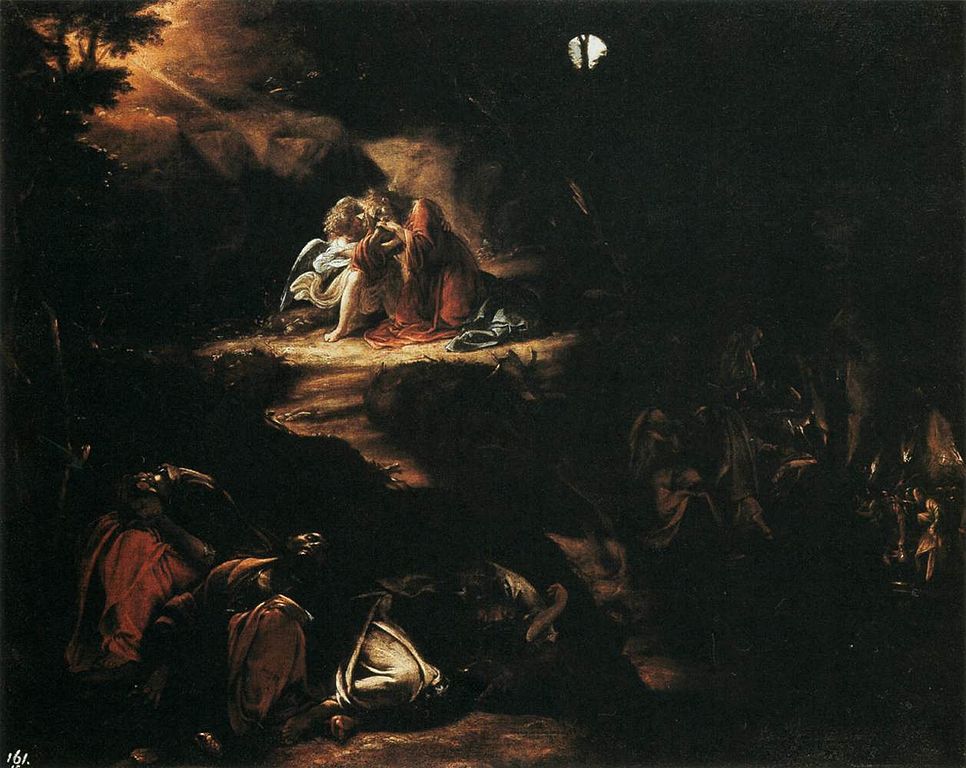Sometimes we picture Jesus far too serene. We imagine him in the garden praying rather stoically, “Not my will, but yours be done.” But the mood at Gethsemane was anything but tranquil. Mark 14:33 says Jesus began to be greatly distressed and troubled. Verse 34 says his soul was sorrowful unto death. And in verse 35 Jesus fell flat on the ground. Here is a man with the weight of the world, and heaven and hell, on his shoulders.
Never has a man prayed facing more temptation than Jesus faced in the garden. Never has a man prayed awaiting so much suffering. Never has a man prayed with such emotion and anguish. Luke records that “being in agony he prayed more earnestly, and his sweat become like great drops of blood falling to the ground” (Luke 22:44). It’s called hematidrosis: under intense pressure or fear, the blood vessels around the sweat glands contract and then dilate violently, causing them to rupture. Blood then enters the glands and is secreted through the pores of the skin. The endocrine system knew what was coming.
It is impossible to exaggerate the depth of Jesus’ anguish in the garden. Imagine knowing your child would die later today or that the planes were going to crash into the Twin Towers or that you’ll have a terrible car accident next Friday. That’s what Jesus knew was coming, only terribly and eternally worse. Jesus was facing more than death or sadness. He was facing God-forsakeness.
Jesus stared at the worst drink a man could drink–the cup of God’s wrath. He gazed into its bitter poison. He thought of draining it down to the dregs. And hoped for another way.
But there was no other way. Upon making his request three times–“Remove this cup from me”–Jesus was not set free from the suffering before him. Just the opposite. After praying in the garden, his closest friends disappoint him (Mark 14:36-41), one of his disciples betray him (14:42-49), and all his companions desert him (14:50). Even the anonymous young man in the background would rather run stark naked through the woods in the middle of the night than be caught next to Jesus.
This is dark Gethsemane where Jesus Christ–the perfectly obedient, perfectly faithful Son of God in perfect relationship with his Father–did not get his request granted. At least not his first one. The cup was not taken from him. The wrath would not be assuaged another way. Jesus could not avoid his infinitely grievous dark weekend of the soul. God’s will would be done. Not the way Jesus had hoped. But the way he was willing for it to be.
For us. For joy. For glory.
